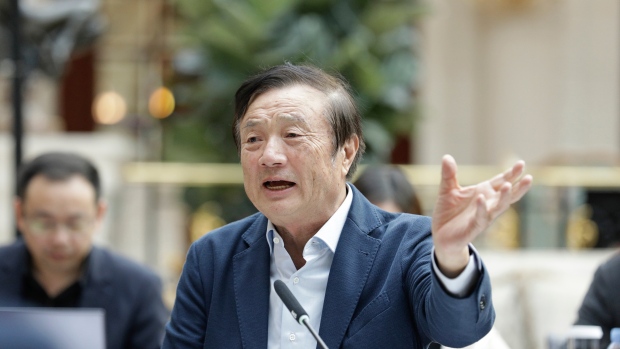Mar 15, 2019
Huawei founder says Canada, company both 'victims' of fallout from his daughter's arrest

Huawei Technologies Co. founder Ren Zhengfei says Canada is not to blame for the arrest of his daughter.
In an exclusive interview with CTV News Chief Anchor and Senior Editor Lisa LaFlamme, Ren appeared to extend an olive branch to Canada after his daughter, Meng Wanzhou, was arrested in Vancouver at the request of the United States late last year.
"I think both Canada and Huawei are victims because this case hurt the feelings of people of both countries," Ren said in the interview. “We don't want this to have a negative impact on the relationship with Canada or Huawei's confidence in Canada. We will not reduce our investment in Canada because of that, because if United States is closing its doors, that will be the benefit for Canada.”
Meng was arrested during a stopover at the Vancouver airport in December at the request of U.S. authorities, who accused her of defrauding banks into processing transactions that potentially violated Iran sanctions. The U.S. requested her extradition in January and charged her with multiple counts of fraud, each of which could carries a maximum sentence of 30 years in prison.
Meng remains in B.C. as her extradition case moves through the courts. Her detention has created a diplomatic standoff between Canada and China.
LaFlamme asked Ren if he saw Meng’s arrest as a personal attack.
“I don’t know,” he answered. “We have to wait for the details of the case so we can see if this is targeted at me, Wanzhou or Huawei.”
When it comes to the Trump Administration’s treatment of Huawei, Ren — who started the company in 1987 — said the U.S. government has brought more global attention the company.
"I think we should have paid them for the advertising campaign because Huawei has never been so famous in the world, and they are advocating and advertising for us,” he said.
“Anyone who did not know us well enough might say Huawei might be bad. We are a hot topic right now and after they understand us better, they [will] find out that actually Huawei is a good company."
Ren also shared his thoughts on Canadian Prime Minister Justin Trudeau.
“As for Prime Minister Trudeau, I don't know him personally, he seems quite young and I am old, and maybe we have some differences and I can understand his position,” Ren said. “But we still need to use legal means to protect our rights.”
Meng filed a civil lawsuit earlier this month against Canadian authorities, alleging she was wrongfully detained and searched. She claims that her constitutional rights were breached and is seeking damages for an ordeal she says amounted to “false imprisonment.” The suit was filed March 1 in the Supreme Court of British Columbia against the Canadian Border Services Agency, a Royal Canadian Mounted Police officer and the Canadian government.
“You have to suffer a lot before becoming a hero, and if you don't have scars, you won't have tough skin, so the political suffering for her is a big test for her, her wings will become stronger, she will achieve more,” Ren said of his daughter’s situation.
China meanwhile has been ratcheting up pressure on two Canadians after Meng’s initial arrest. China says that Michael Kovrig, a diplomat on leave from Canada’s foreign service, is suspected of stealing state secrets, and that Michael Spavor, a tour operator, fed him information. A third Canadian man has also been sentenced to death on drug charges in China since Meng’s arrest.










